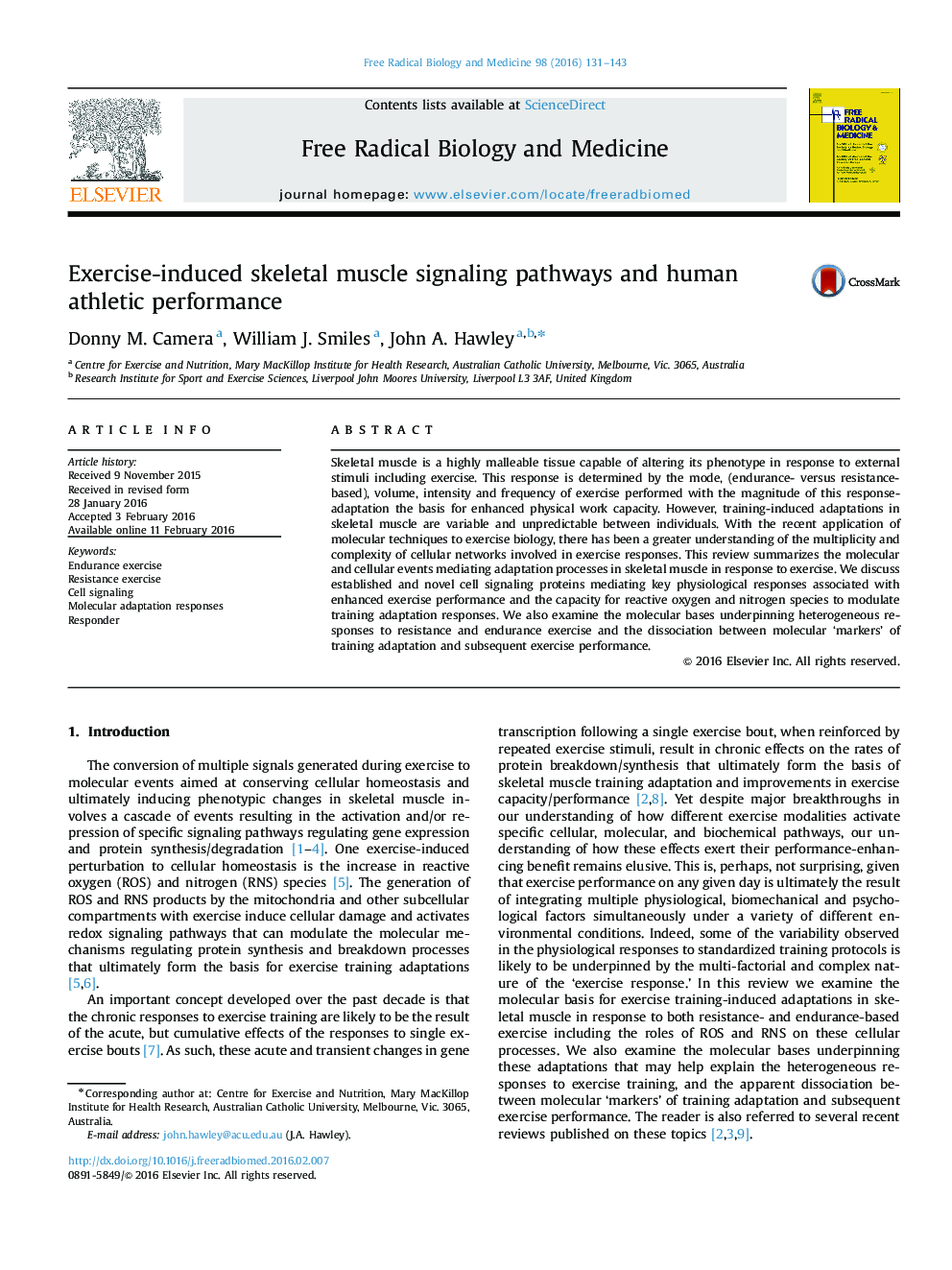| Article ID | Journal | Published Year | Pages | File Type |
|---|---|---|---|---|
| 1907661 | Free Radical Biology and Medicine | 2016 | 13 Pages |
•Exercise performance integrates physiological, biomechanical and cognitive factors.•Exercise adaptations are determined by mode, volume, intensity and frequency.•Disparity exists between changes in cellular variables and functional outcomes.•The magnitude of training responses to exercise are variable and unpredictable.
Skeletal muscle is a highly malleable tissue capable of altering its phenotype in response to external stimuli including exercise. This response is determined by the mode, (endurance- versus resistance-based), volume, intensity and frequency of exercise performed with the magnitude of this response-adaptation the basis for enhanced physical work capacity. However, training-induced adaptations in skeletal muscle are variable and unpredictable between individuals. With the recent application of molecular techniques to exercise biology, there has been a greater understanding of the multiplicity and complexity of cellular networks involved in exercise responses. This review summarizes the molecular and cellular events mediating adaptation processes in skeletal muscle in response to exercise. We discuss established and novel cell signaling proteins mediating key physiological responses associated with enhanced exercise performance and the capacity for reactive oxygen and nitrogen species to modulate training adaptation responses. We also examine the molecular bases underpinning heterogeneous responses to resistance and endurance exercise and the dissociation between molecular ‘markers’ of training adaptation and subsequent exercise performance.
